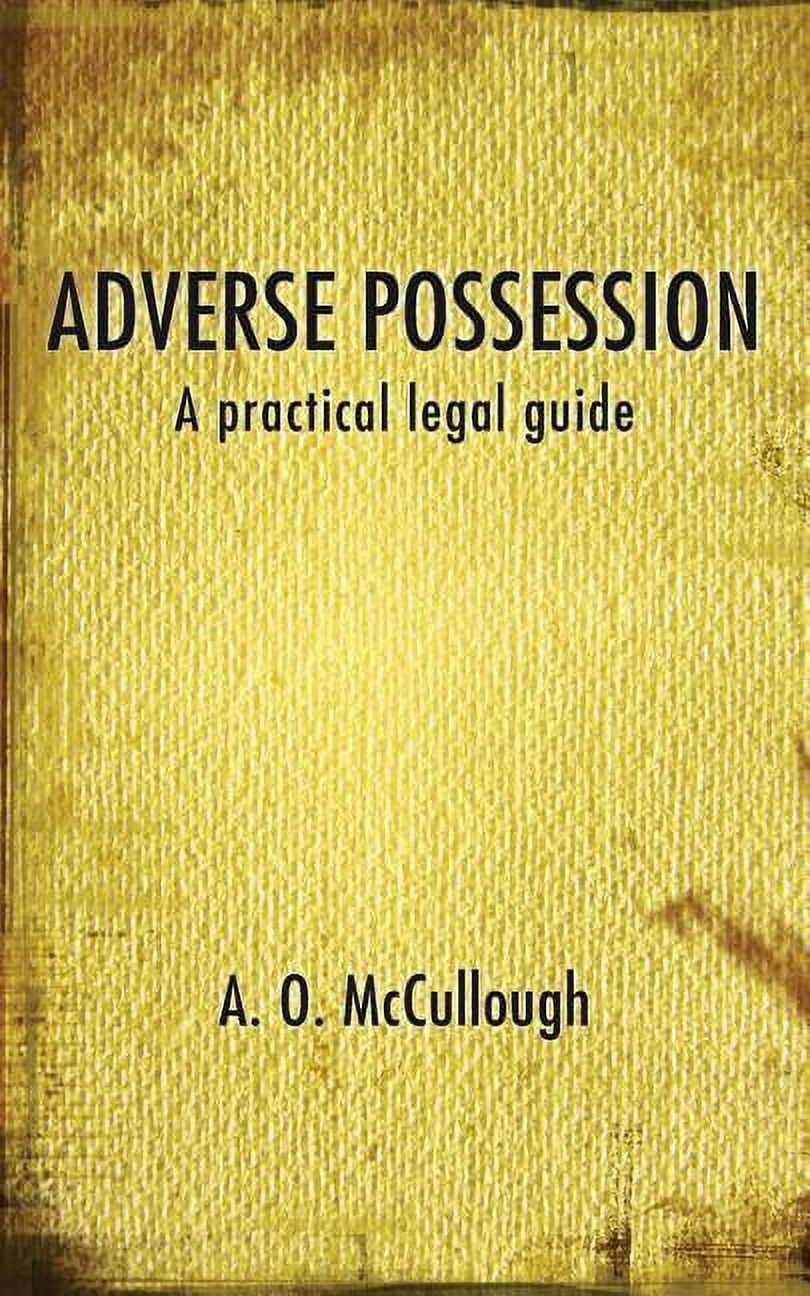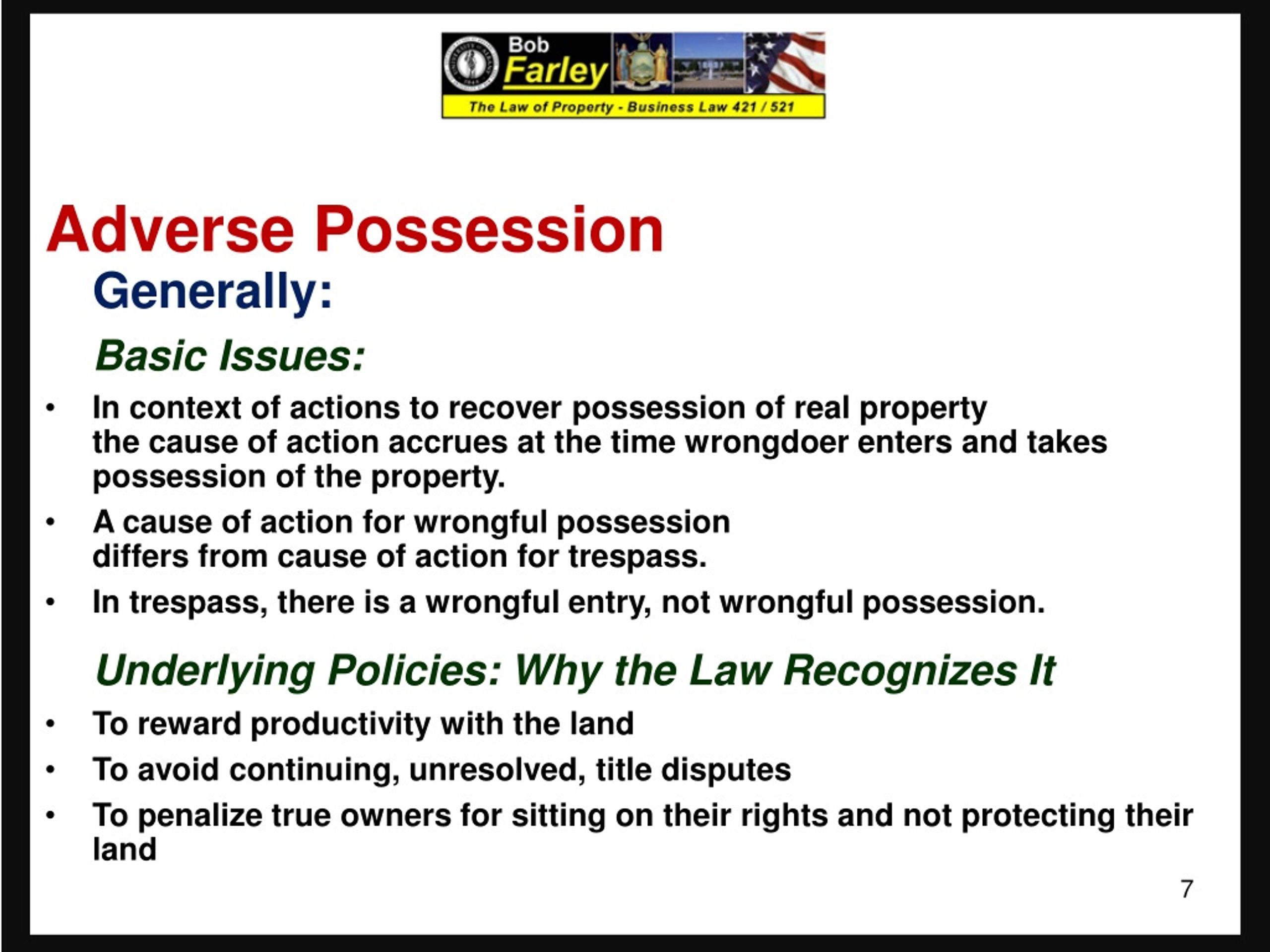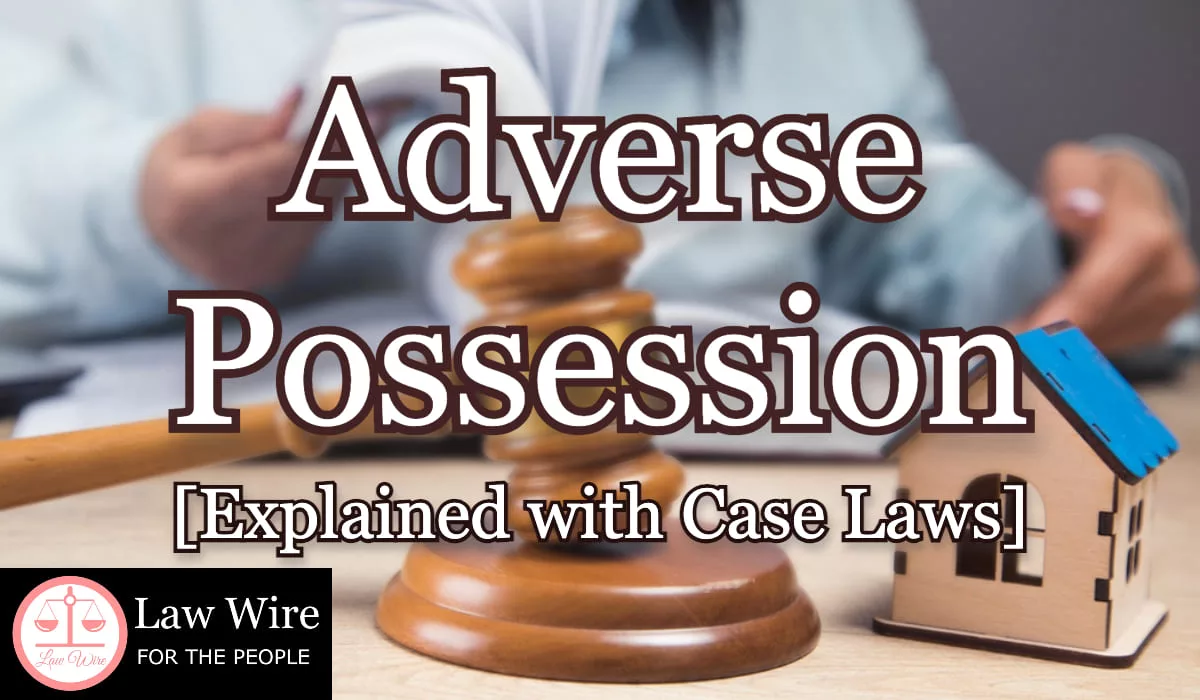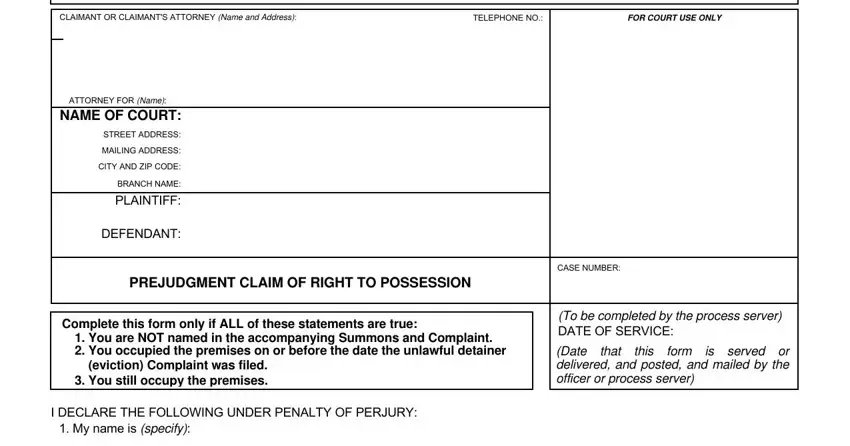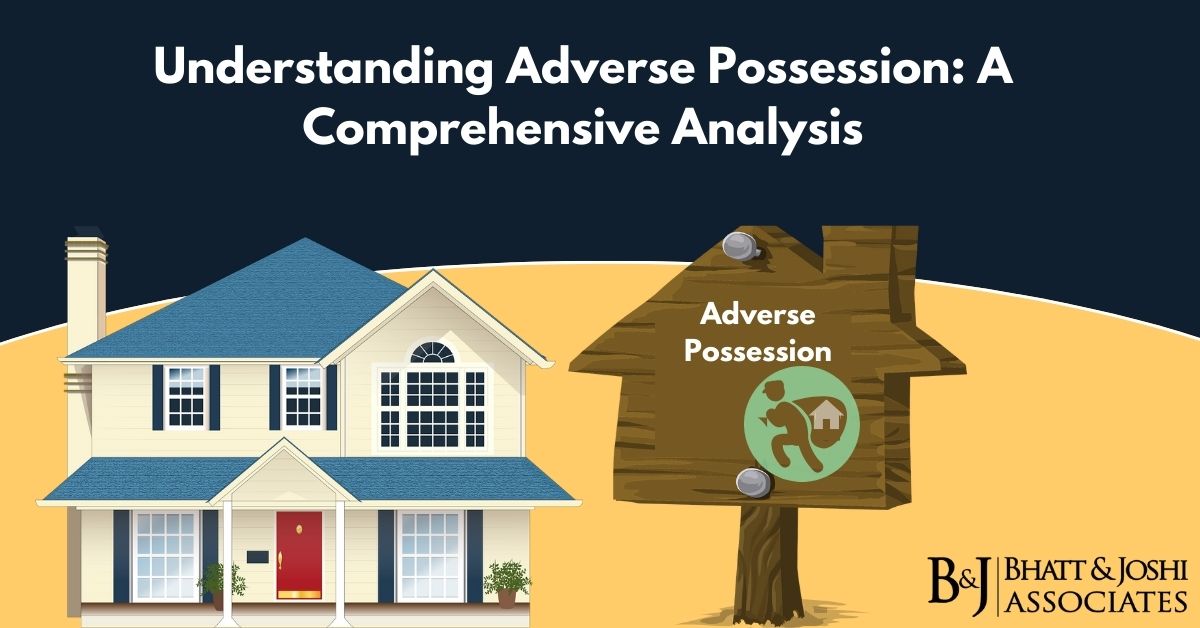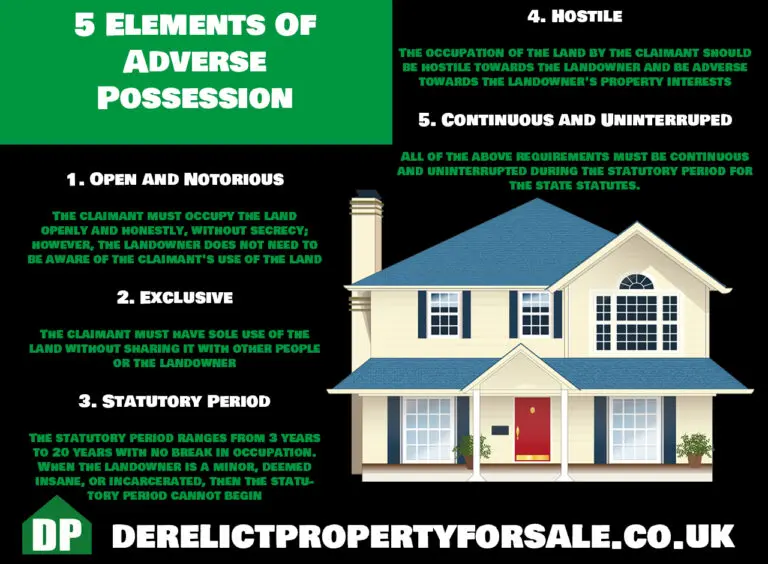How To File For Adverse Possession In Alabama

Imagine a sun-drenched field in rural Alabama, bordered by ancient oaks, where generations have walked, unaware of the subtle dance of land ownership playing out beneath their feet. A forgotten fence line, a diligently maintained garden extending just beyond the surveyed boundary – these seemingly insignificant details could be the seeds of a legal concept known as adverse possession, a fascinating and sometimes contentious path to claiming land.
This article explores the complex process of filing for adverse possession in Alabama. It will offer an understandable guide to the legal requirements and practical considerations involved in potentially claiming ownership of land through long-term, open, and hostile use.
Understanding Adverse Possession: The Basics
Adverse possession, often referred to as "squatter's rights" in less formal terms, is a legal doctrine that allows a person to claim ownership of property they don't legally own, provided they meet specific conditions over a statutory period. This concept, rooted in common law, aims to resolve boundary disputes and reward the productive use of land.
Alabama, like many other states, has a specific set of laws governing adverse possession. These laws are designed to protect the rights of property owners while also recognizing the value of individuals actively using and improving land, even if their initial claim isn't based on a deed or title.
Alabama's Requirements for Adverse Possession
To successfully claim adverse possession in Alabama, a claimant must demonstrate several key elements. These elements must be proven to a court of law, making it crucial to understand each one thoroughly.
1. Actual Possession
The claimant must physically possess the land in question. This means they must use the land in a way that is consistent with ownership, such as building structures, cultivating crops, or maintaining a lawn. It's more than just occasionally walking across the land; it's about treating the land as one's own.
According to legal precedent in Alabama, the type of possession required depends on the nature of the land. For example, using a wooded area for hunting might not be sufficient, but consistently harvesting timber could be.
2. Open and Notorious Possession
The possession must be visible and obvious to the true owner. It cannot be secretive or hidden. The idea is that the true owner should be aware that someone else is claiming their land if they were to inspect the property.
Examples of open and notorious possession include constructing a fence, building a structure, or consistently cultivating a garden that extends onto the disputed property.
3. Exclusive Possession
The claimant must possess the land exclusively, meaning they cannot share possession with the true owner or with the general public. This doesn't necessarily mean they must physically prevent others from accessing the land, but it does mean they must demonstrate an intent to exclude others.
If the true owner also uses the land, even occasionally, it can undermine the exclusivity requirement. Shared use typically defeats an adverse possession claim.
4. Hostile Possession
This is perhaps the most misunderstood element. "Hostile" doesn't necessarily mean the claimant must be aggressive or confrontational. In Alabama, it generally means that the claimant possesses the land without the true owner's permission.
There are different interpretations of "hostile intent." Some states require a showing of good faith (the claimant believes they own the land), while others focus on a more objective standard: did the claimant possess the land as if they owned it, regardless of their subjective belief?
5. Continuous Possession for the Statutory Period
In Alabama, the statutory period for adverse possession is generally 20 years. This means the claimant must maintain continuous possession of the land for at least 20 years, meeting all the other requirements during that time.
However, the statutory period can be reduced to 10 years if the claimant has color of title (a document that appears to grant ownership but is defective) and has paid taxes on the property for 10 years.
The Process of Filing for Adverse Possession in Alabama
Filing for adverse possession in Alabama is a legal process that typically involves a lawsuit. It's strongly recommended to consult with an attorney experienced in real estate law to navigate the complexities.
The process generally involves gathering evidence to support the claim, filing a lawsuit in the appropriate court (usually the circuit court in the county where the land is located), and presenting evidence to the court to prove each element of adverse possession.
Step 1: Gather Evidence: Collect any documentation that supports your claim, such as photographs, witness testimonies, tax records (if applicable), and surveys. Accurate records are essential.
Step 2: Consult with an Attorney: A real estate attorney can assess your case, advise you on the strength of your claim, and guide you through the legal process. They can also help you understand the risks and potential costs involved.
Step 3: File a Lawsuit: Your attorney will file a lawsuit against the legal owner of record, seeking a court order declaring you the owner of the property through adverse possession. This lawsuit initiates the legal proceedings.
Step 4: Present Evidence in Court: You will need to present evidence to the court to prove each element of adverse possession. This may involve presenting documents, calling witnesses, and submitting expert testimony. The burden of proof rests on the claimant.
Step 5: Court Decision: The court will review the evidence and determine whether you have met the requirements for adverse possession. If the court rules in your favor, it will issue an order declaring you the owner of the property.
Challenges and Considerations
Adverse possession claims can be complex and often involve significant legal challenges. The true owner of the property is likely to defend their ownership rights vigorously, leading to a potentially lengthy and costly legal battle.
It's important to be aware that adverse possession claims can strain relationships with neighbors and potentially lead to disputes that extend beyond the legal realm. Consider the potential impact on your community and your personal relationships before pursuing a claim.
Title insurance companies are often hesitant to insure property acquired through adverse possession until the title has been quieted in court. This can affect your ability to sell or mortgage the property in the future.
Alternatives to Adverse Possession
Before pursuing an adverse possession claim, consider exploring alternative methods of resolving boundary disputes. These may include negotiating with the property owner to purchase the disputed land, obtaining a boundary line agreement, or seeking mediation to resolve the issue amicably.
A boundary line agreement is a written agreement between adjacent property owners that establishes the location of the boundary line between their properties. This agreement can be recorded in the county land records and becomes binding on future owners.
Mediation involves a neutral third party helping the property owners reach a mutually agreeable resolution. This can be a less adversarial and less costly alternative to litigation.
Conclusion
The journey to claiming land through adverse possession in Alabama is a challenging one, demanding meticulous adherence to legal requirements and a deep understanding of property law. While the prospect of acquiring land in this way may seem appealing, it's crucial to weigh the potential benefits against the significant legal and personal costs involved.
Remember that every situation is unique, and the information provided here is for general guidance only. Seeking expert legal advice from a qualified Alabama real estate attorney is paramount before taking any action regarding a potential adverse possession claim. Only then can you navigate the complexities of the law with confidence and clarity, ensuring your actions are aligned with both the letter and the spirit of the law.




